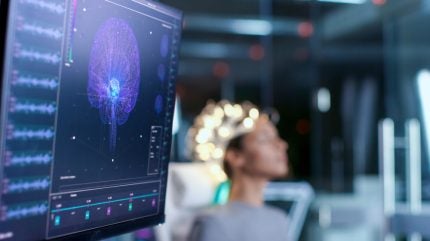
Corundum Neuroscience has awarded a research grant to Israel’s Tel Aviv University to develop a machine learning (ML)-based method for the non-invasive detection of abnormal brain activity in deep brain regions during sleep.
The study will use ML and AI to classify subtle signals detected when paroxysmal discharges occur, with high-density electroencephalography (hd-EEG). The sleep data will be collected from elderly individuals with cognitive impairment and dementia.

Discover B2B Marketing That Performs
Combine business intelligence and editorial excellence to reach engaged professionals across 36 leading media platforms.
The objective of the study is to create disease-specific biomarkers for a range of neurodegenerative conditions.
“There is currently no objective tool available with the necessary sensitivity to non-invasively detect and quantify the brain activity signatures we are investigating,” said Professor Nir, principal study investigator.
“Our aim is to combine research on brain activity during sleep with machine learning, laying the groundwork for the measurement of abnormal brain states in dementia during sleep and, ultimately, to validate biomarkers for a wide range of neurological disorders.”
The study will test detection tools on hd-EEG sleep data of early and late dementia and compare it with healthy individuals. Furthermore, the project will also investigate the extent to which sleep paroxysmal discharges can be identified in different stages of neurodegeneration.

US Tariffs are shifting - will you react or anticipate?
Don’t let policy changes catch you off guard. Stay proactive with real-time data and expert analysis.
By GlobalDataCorundum hopes that in the short term, the research may help identify individuals with early-stage dementia who could benefit from anti-epileptic treatments. In the long term, the research opens avenues to improve diagnosis, prognosis, drug titration, and risk stratification in epilepsy, dementia, and a wide range of neurological and psychiatric conditions.
The research into sleep diagnostics and monitoring has been increasing in recent years. In January, Netherlands-based Onera Health raised €30m ($32.7m) in Series C financing to accelerate the clearance of second-generation at-home sleep disorder diagnostics, and polysomnography (PSG) systems in Europe and the US.
In October 2023, Sleepiz received Class II 510(k) clearance from the US Food and Drug Administration (FDA) for its Sleepiz One+ bedside device, which uses radar technology for contactless monitoring of a patient’s breathing patterns, and respiration and heart rates while sleeping.





